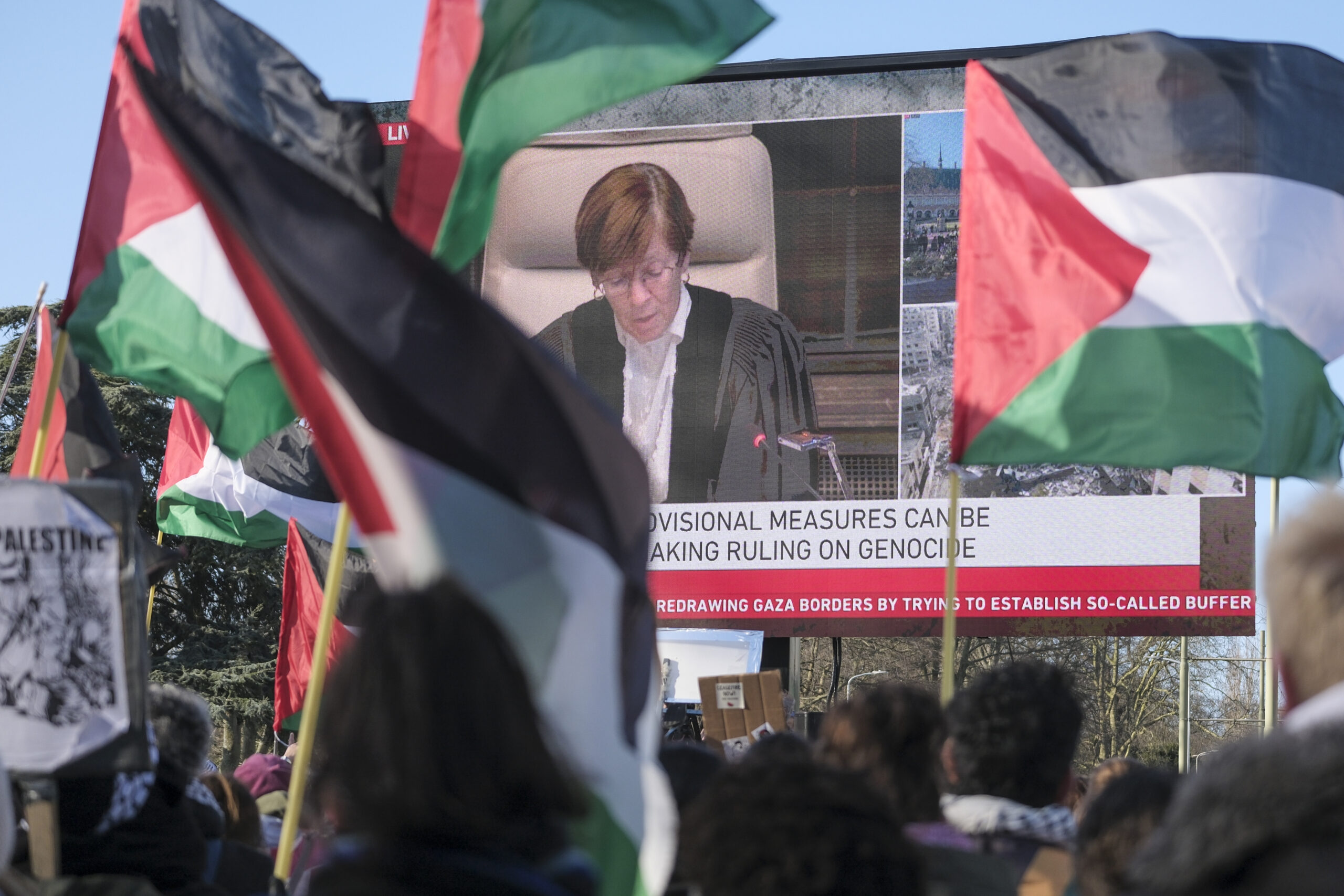THE HAGUE, Netherlands (AP) – The United Nations’ top court issued a directive on Friday, instructing Israel to take all necessary measures to prevent death, destruction, and acts of genocide in Gaza. However, the ruling stopped short of ordering a cease-fire, leaving the military offensive in the Palestinian enclave intact. The court’s decision, stemming from a genocide case brought by South Africa, further intensifies the legal scrutiny on Israel, a move that will likely reverberate for years in one of the world’s most enduring conflicts.
Court President Joan E Donoghue expressed the court’s acute awareness of the human tragedy unfolding in the region, acknowledging deep concerns about the ongoing loss of life and human suffering. The ruling, while falling short of calling for an immediate halt to the nearly 4-month-old offensive, serves as a significant rebuke to Israel’s wartime conduct. The court issued six orders, emphasising the difficulty of their achievement without a cease-fire or pause in the fighting.
The gravity of the situation is highlighted by the staggering casualties—more than 26,000 Palestinians killed, vast swaths of Gaza decimated, and nearly 85 per cent of its 2.3 million people displaced from their homes. Israeli Prime Minister Benjamin Netanyahu decried the court’s willingness to discuss genocide charges as a “mark of shame,” vowing to press ahead with the war, a stance that underlines the deep-rooted tensions in the conflict.
The timing of the ruling on the eve of International Holocaust Remembrance Day adds a poignant layer to the international pressure on Israel. UN Secretary-General Antonio Guterres emphasised the legal binding nature of the court’s rulings, trusting Israel to comply with orders aimed at preventing the destruction of the Palestinian people. Former Israeli Defense Minister Benny Gantz echoed the sentiment, pointing out that those who should stand trial are the ones responsible for the murder and kidnapping of children, women, and the elderly.
The court’s call for Hamas to release hostages adds complexity to the situation, with both sides urged to comply with the rulings. While some measures received overwhelming support from the judges, an Israeli judge voted in favour of only two—the order for humanitarian aid and the prevention of inflammatory speech. The hope is that these measures will decrease tensions and discourage damaging rhetoric, particularly aimed at alleviating the consequences of the armed conflict for the most vulnerable.
The provisional measures issued by the court are legally binding, but the question of Israel’s compliance remains uncertain. Netanyahu, in response, pledged to continue defending the country and its people, expressing defiance in Hebrew while adopting a more measured tone in English, signaling a delicate balance between domestic and international audiences.
The court ruled that Israel must do everything in its power to prevent genocide, refrain from harming or killing Palestinians, urgently provide basic aid to Gaza, and punish any incitement to genocide. Israel is required to submit a report on its actions within a month. Legal experts suggest that failure to meet these orders could lead to the court accusing Israel of committing genocide, heightening the stakes in an already volatile situation.
Friday’s decision, an interim ruling, sets the stage for the court to delve deeper into South Africa’s genocide allegations against Israel, a process that could take years. In Israel, the decision not to mandate a cease-fire was met with some relief, avoiding a direct collision with a top UN body. Palestinians and their supporters welcomed the ruling as a step toward holding Israel accountable, while the internationally backed Palestinian self-rule government called it a wake-up call for Israel and its allies.
The US reiterated its stance that Israel must take steps to minimise harm to civilians, increase humanitarian aid, and curb dehumanising rhetoric. However, it maintained that allegations of genocide are unfounded. The South African government, on the other hand, viewed the ruling as determining that Israel’s actions in Gaza are plausibly genocidal, challenging Israel’s claim of compliance with international law.
Israel’s decision to send a high-level legal team to engage with the court underscores the significance it attaches to the case. The Health Ministry in Hamas-run Gaza, not distinguishing between combatants and civilians, reported a death toll with about two-thirds being women and children. The Israeli military contends that a significant portion of the dead are Hamas militants.
The looming threat of disease and malnutrition for a quarter of Gaza’s population is a grave concern for UN officials. Yuval Shany, a law professor at Hebrew University, characterised the court’s decision as not as bad as feared by Israel, suggesting that it would not fundamentally alter the military’s conduct of the war.
In conclusion, the UN court’s ruling adds a new chapter to the complex and longstanding Israel-Palestine conflict. The orders, while legally binding, set the stage for potential escalation if not adhered to, leaving the region in a precarious state. The international community will be closely watching Israel’s response and the unfolding developments in the aftermath of this landmark decision.








